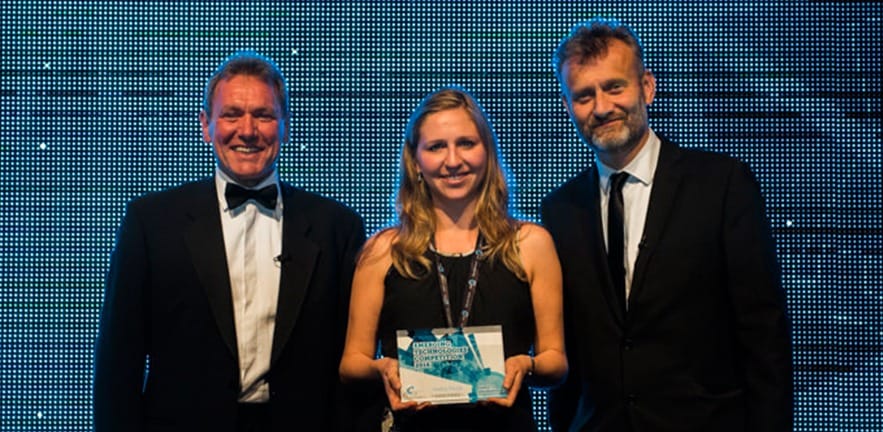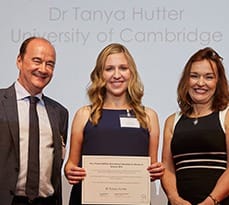Double award success for Accelerate Cambridge venture and its founder.

SensorHut, a venture supported by the Accelerate Cambridge programme run by the Entrepreneurship Centre at Cambridge Judge Business School, has won third prize in the energy & environment category of the Royal Society of Chemistry’s Emerging Technologies Competition 2016.
The 40 shortlisted entrants to the competition pitched their ideas to a panel of experts who judged on the technology’s degree of innovation, its potential impact and the quality of the science behind it.
SensorHut pitched its new sensing technology, which uses optical techniques to significantly improve the detection of chemicals, using nanotechnology to make the sensors more sensitive and more accurate. This technology can be used in a range of applications, such as detecting toxic gases and monitoring air quality.
Dr Tanya Hutter and Dr Marc Stettler founded SensorHut in 2013 after they met through Cambridge iTeams while both studying at the University of Cambridge. The venture will now receive tailored business support from one of the Royal Society of Chemistry’s multinational partner companies, business training, media support, and a cash prize of £2,000.
Dr Hutter has also been named a fellow of the L’Oréal-UNESCO for Women in Science programme, UK and Ireland, in recognition of her scientific achievements. She was among five of the UK’s most promising female scientists awarded fellowships at the 2016 L’Oréal-UNESCO ceremony earlier this month, after being selected from nearly 400 applicants.
Dr Hutter received a £15,000 prize, to spend on whatever she needs to continue her academic research at the University of Cambridge. She is currently developing a real-time online sensor, which can measure molecular changes in the brains of acute head injury patients. The technology will improve upon current labour- and time-sensitive medical techniques, saving time and money. It will also allow more patients to be monitored in critical care units – an intervention which can dramatically improve patient outcomes.
The L’Oréal-UNESCO for Women in Science programme aims to support and help increase the number of women working in sciences. L’Oréal has launched a manifesto in association with UNESCO, encouraging people to show their support for increasing gender equality in science careers.


